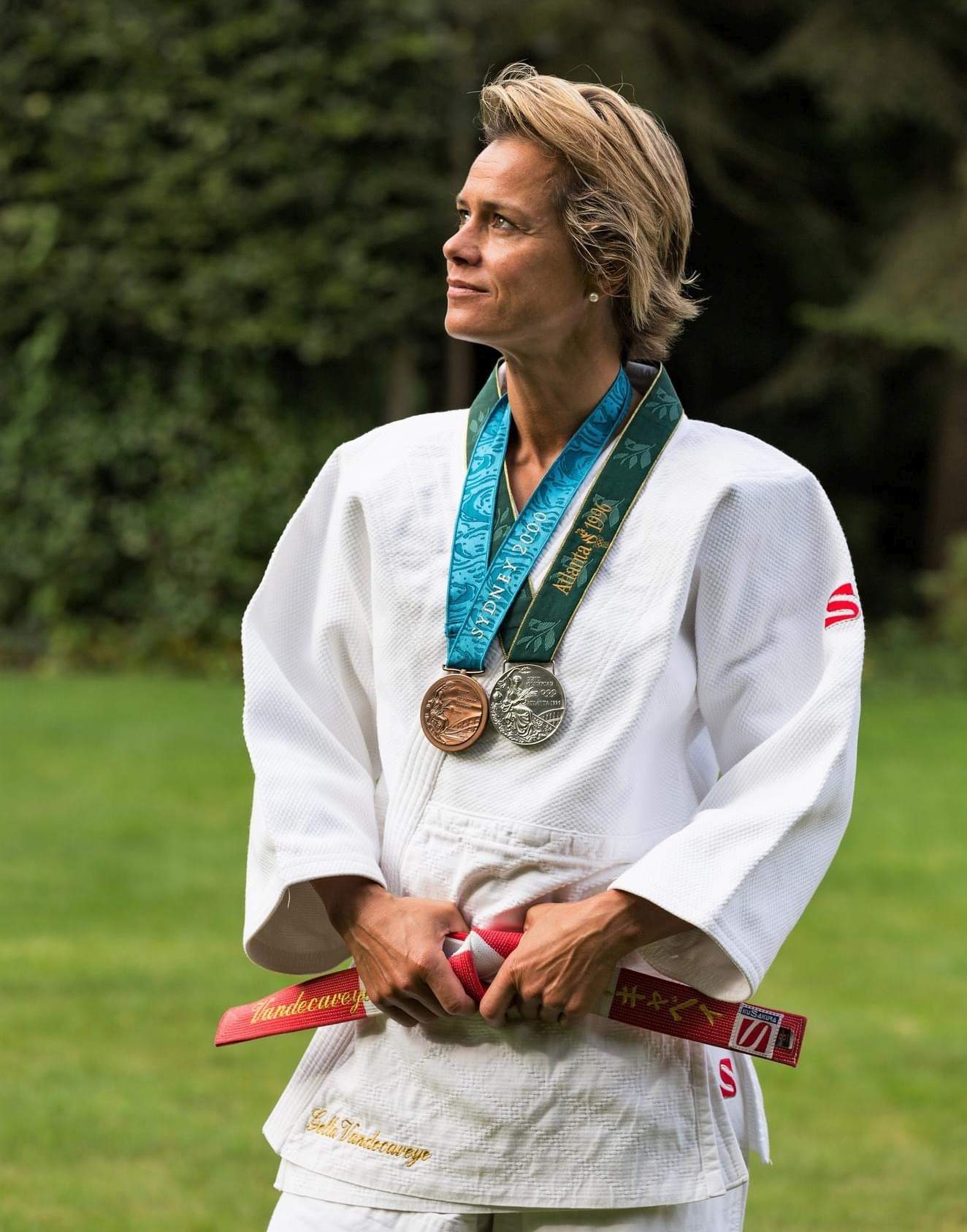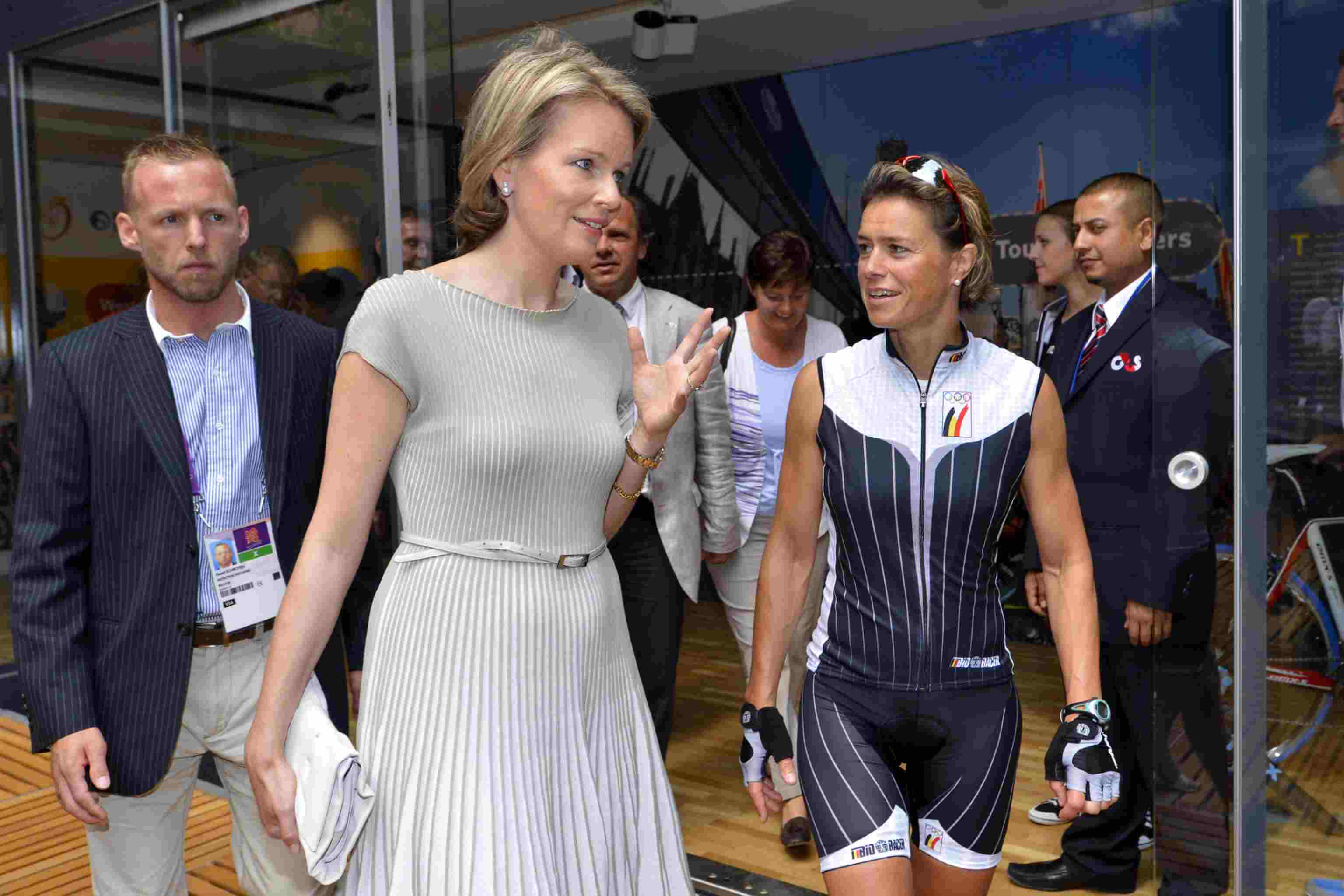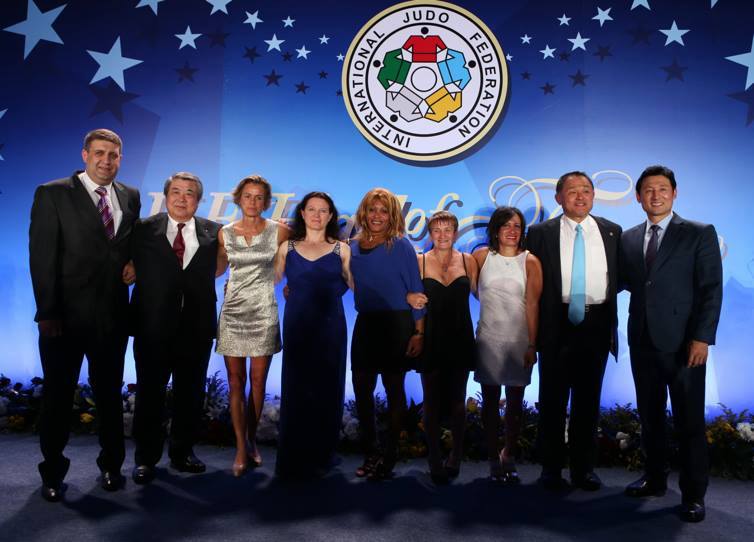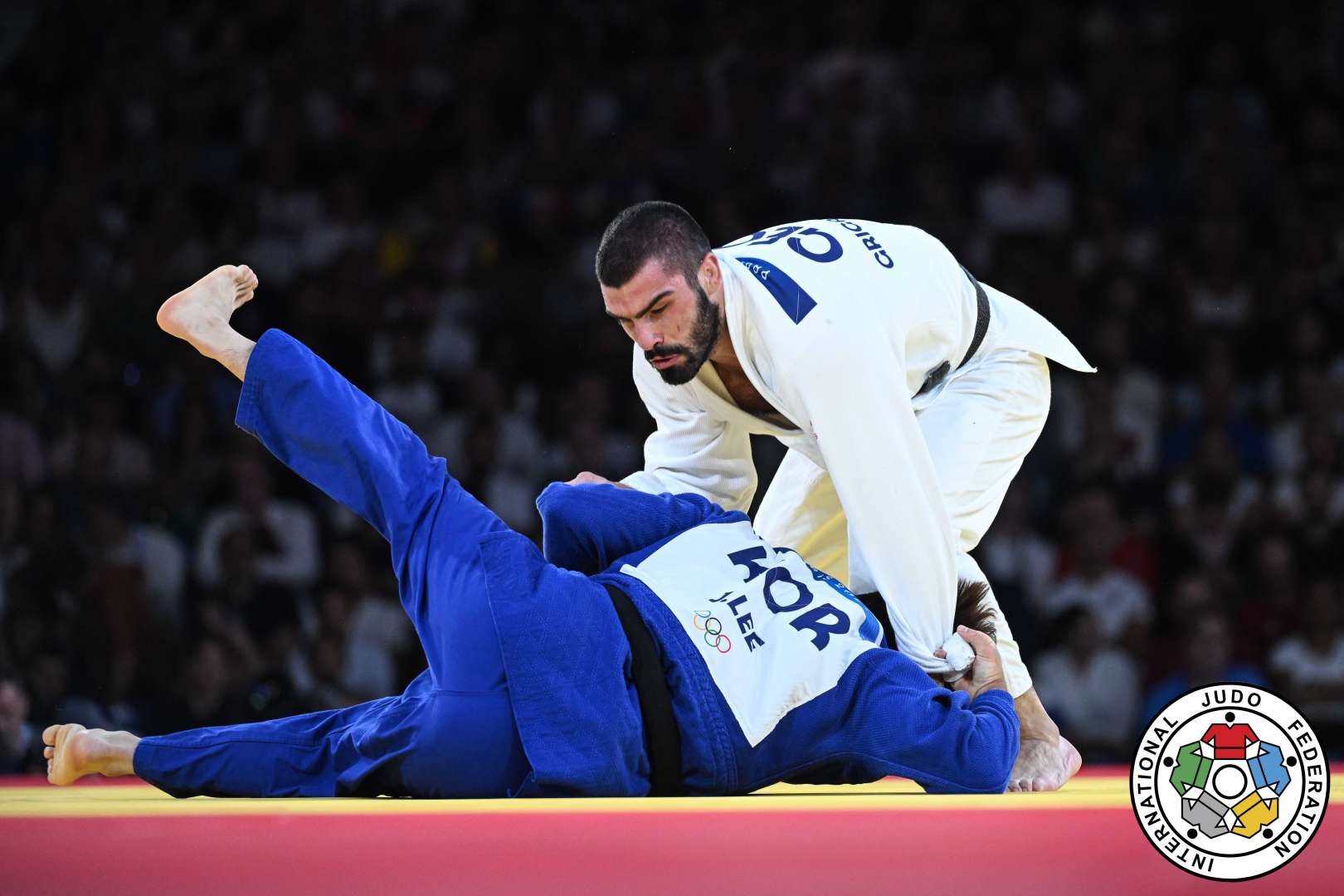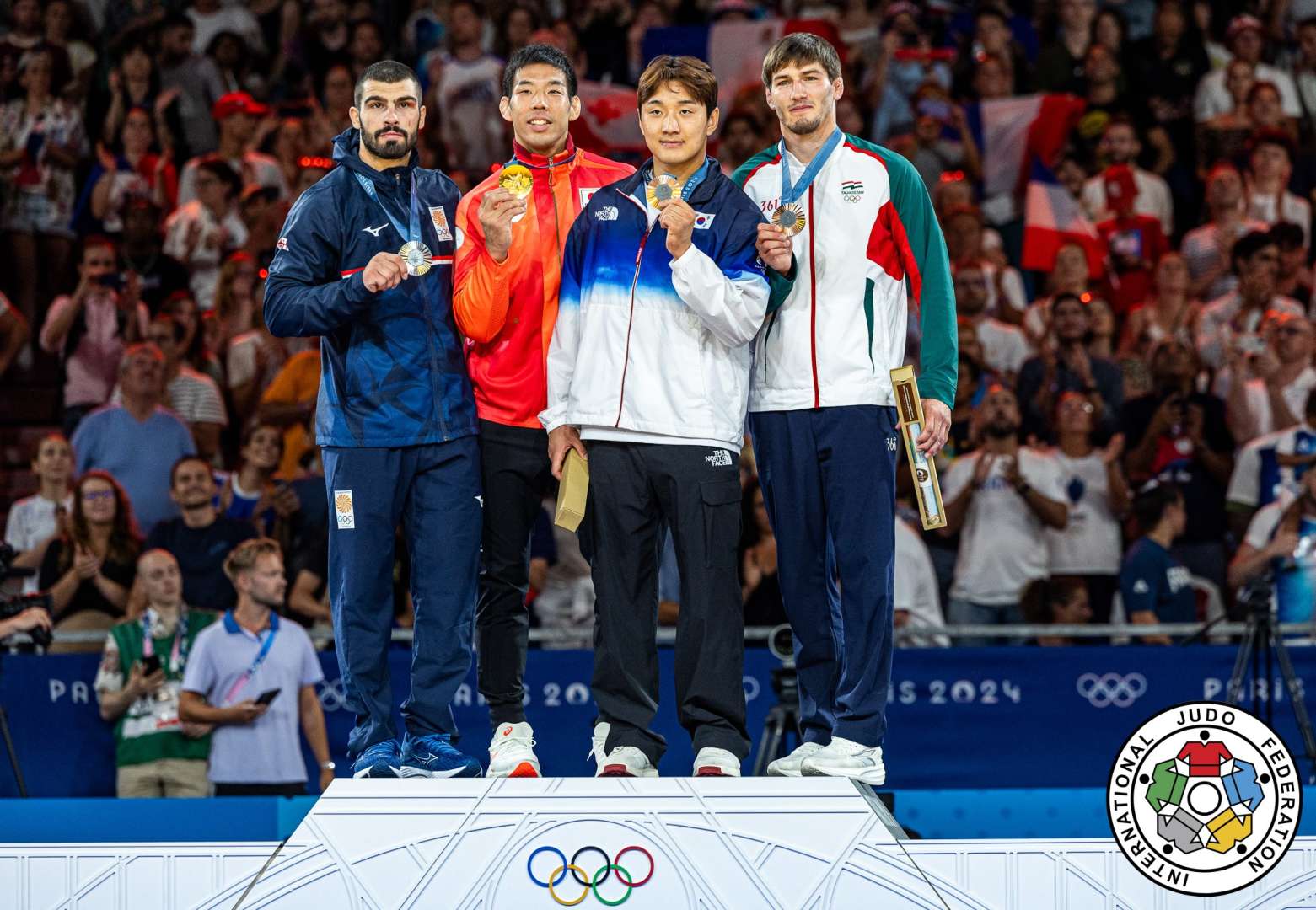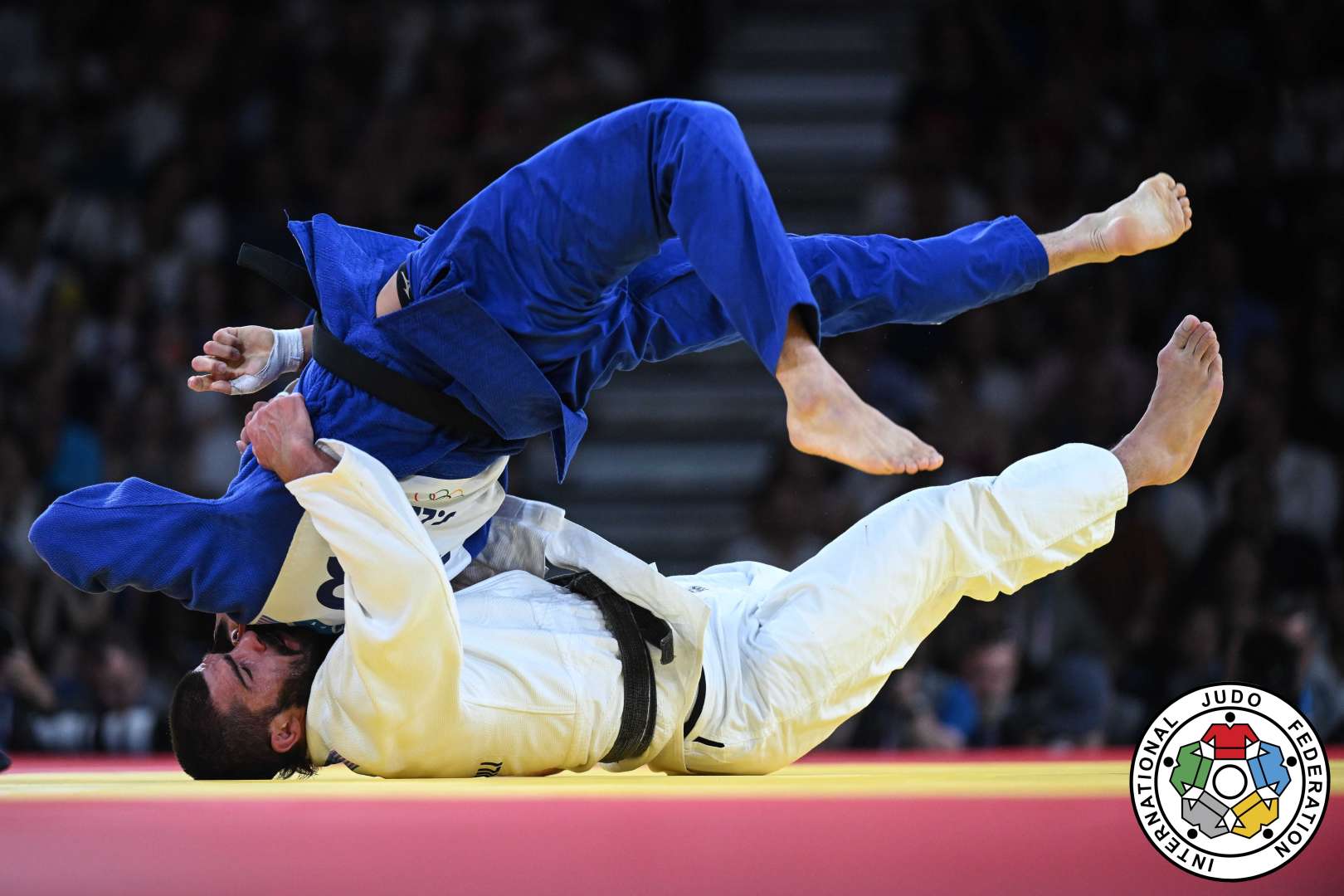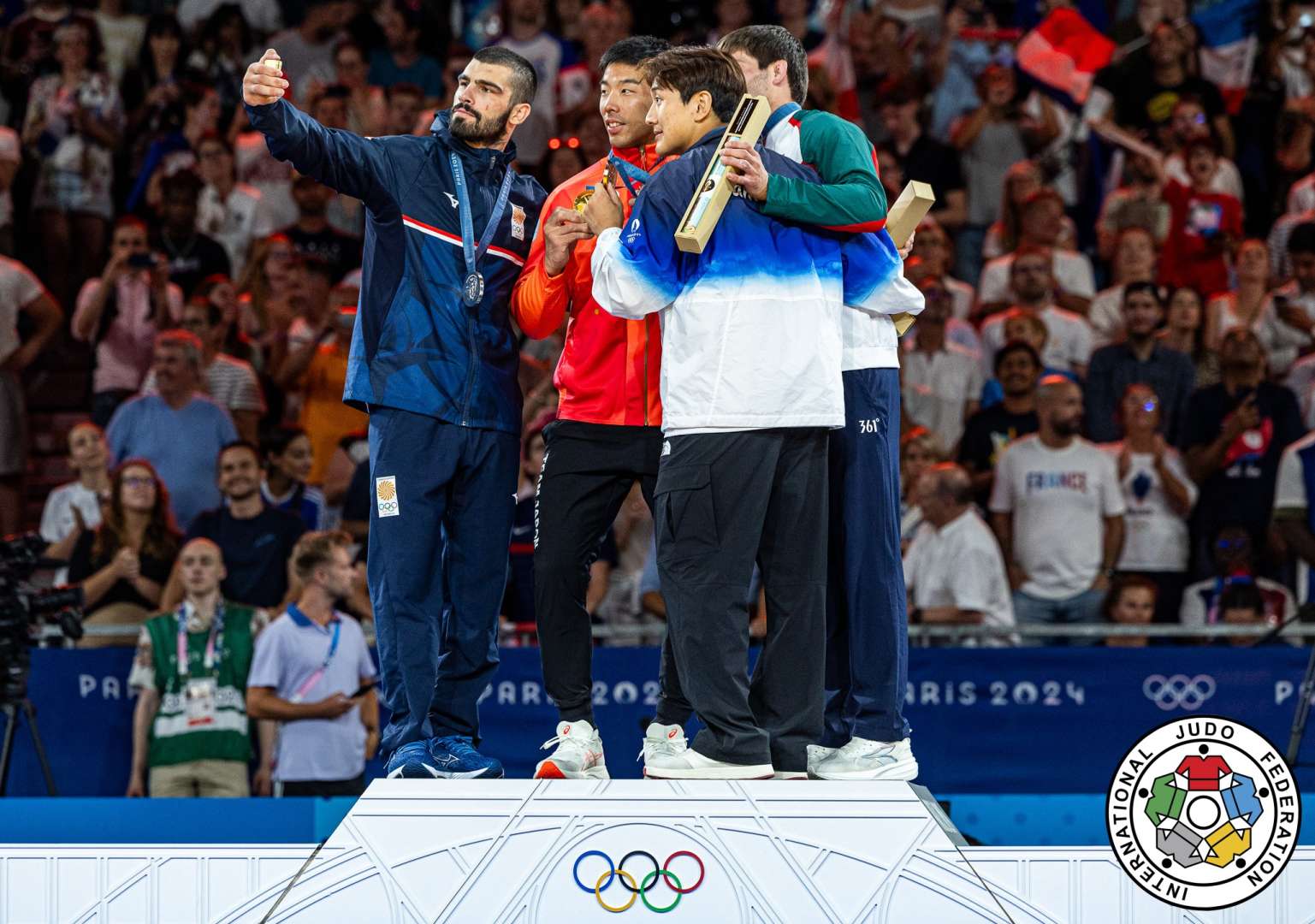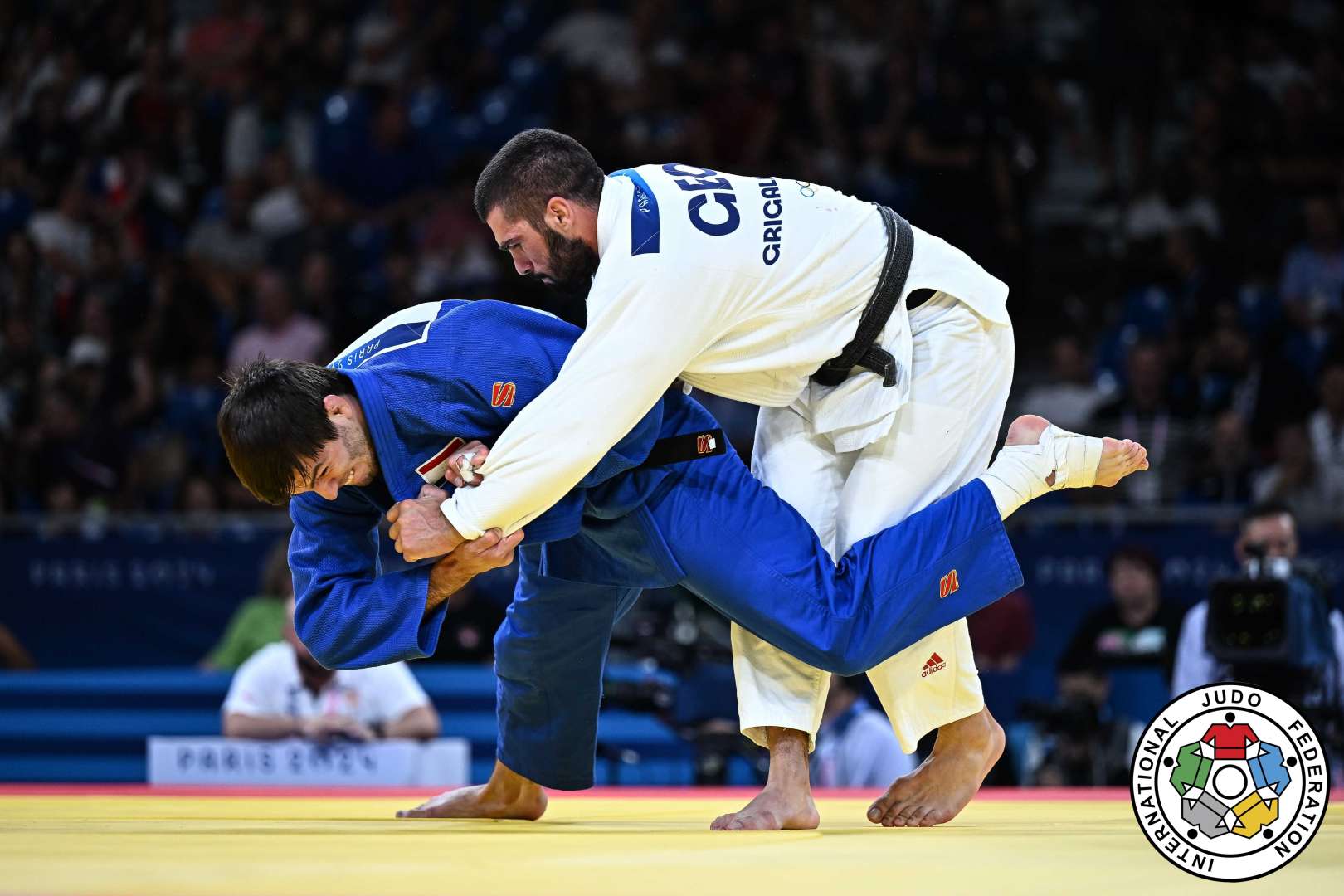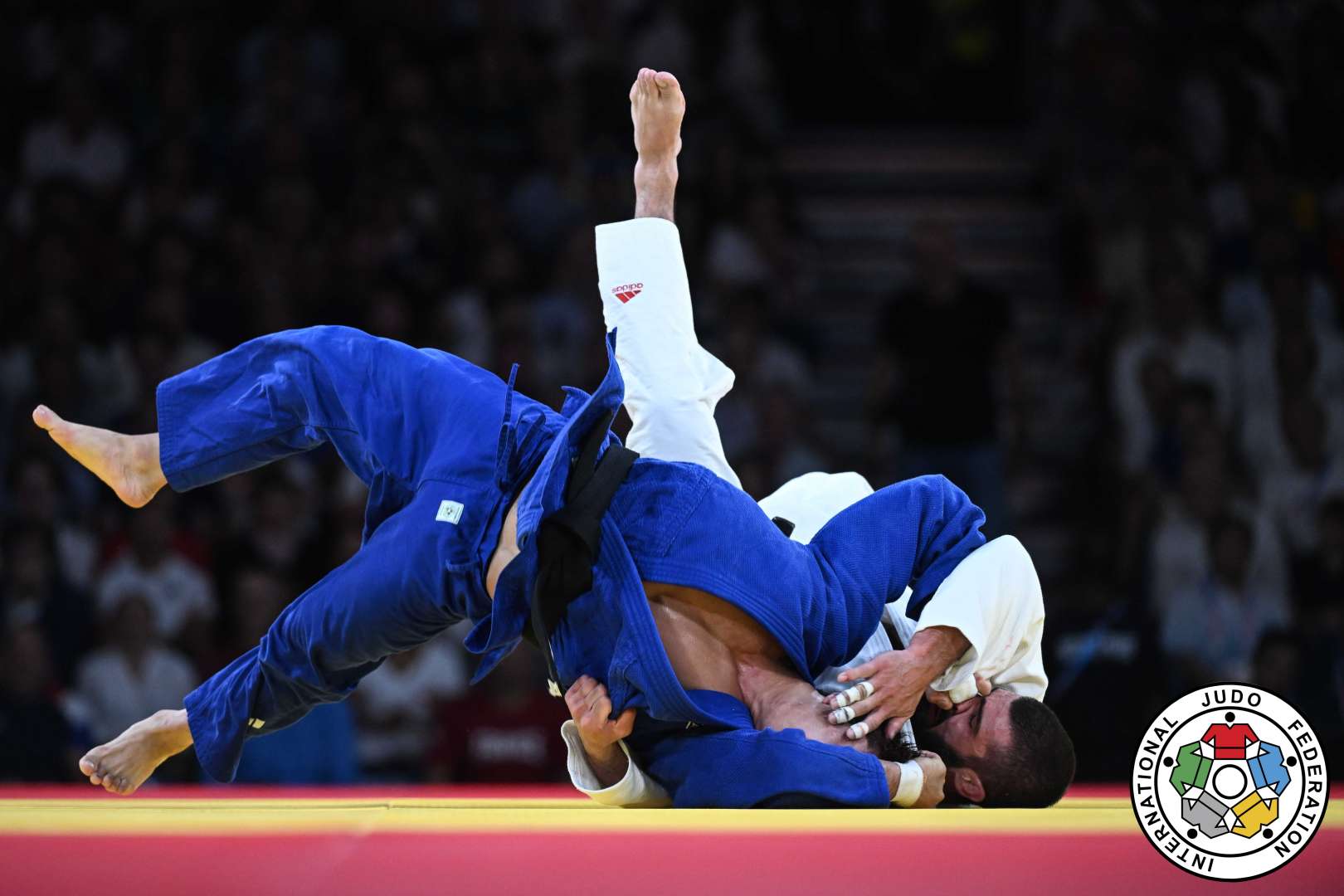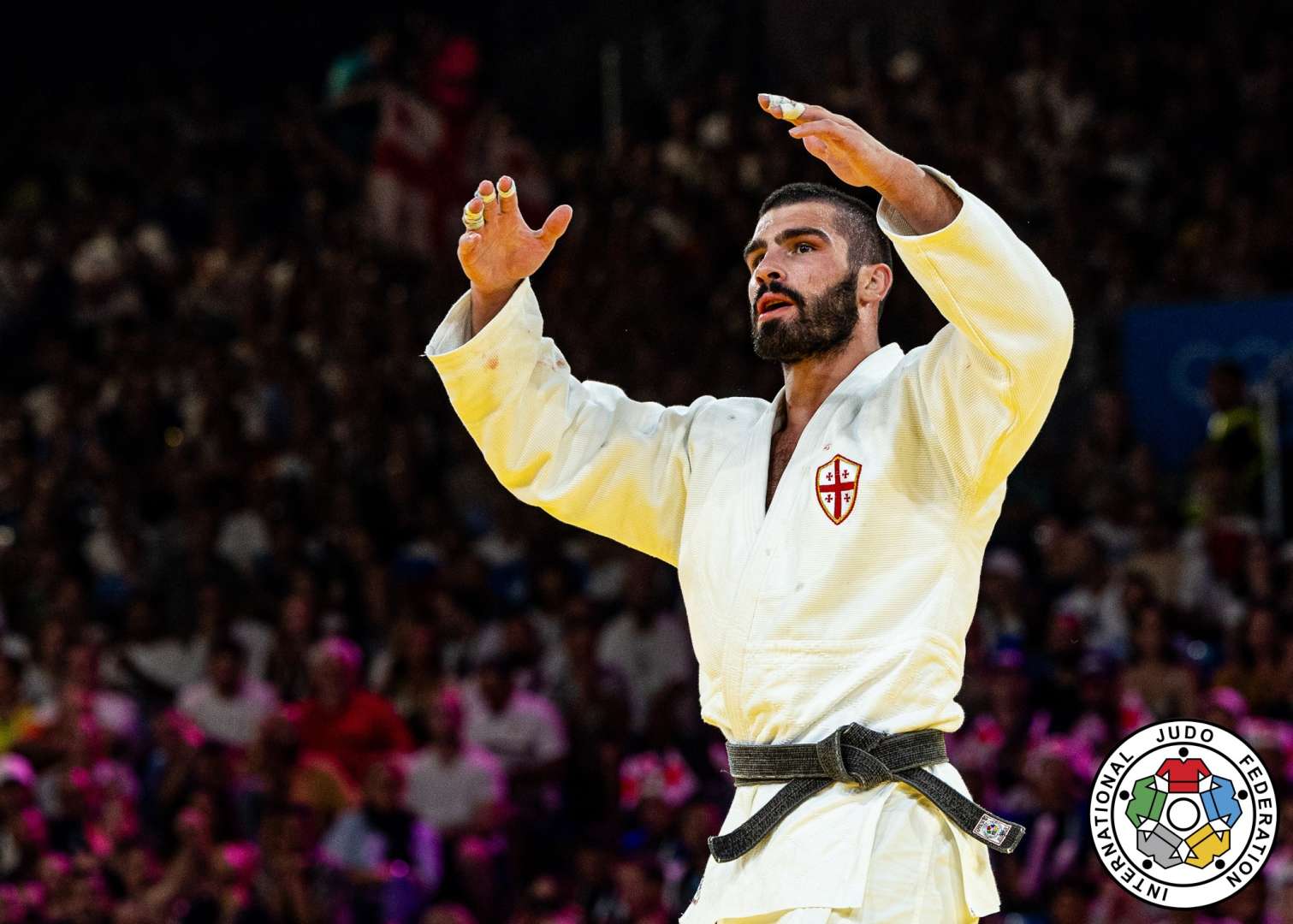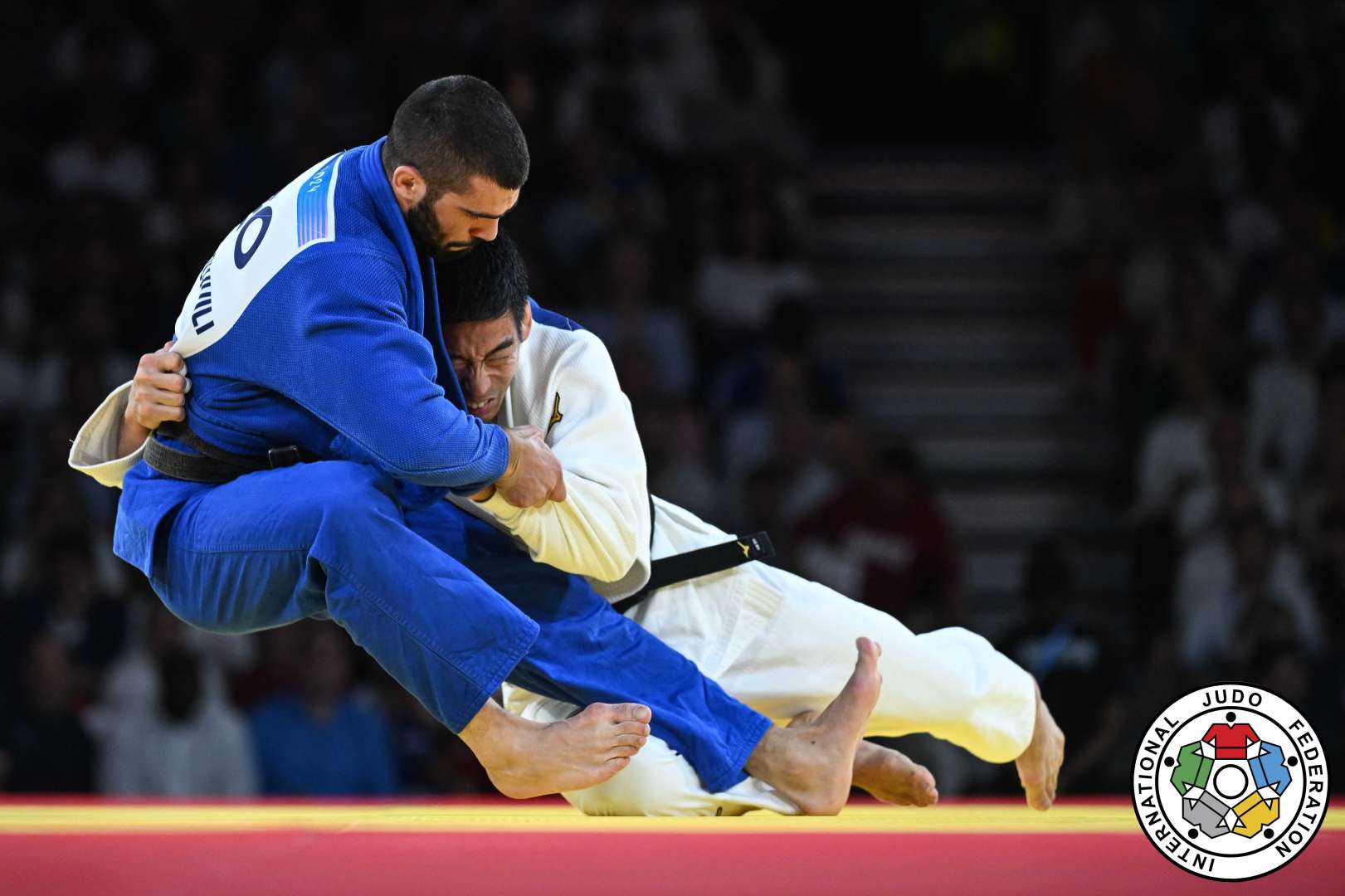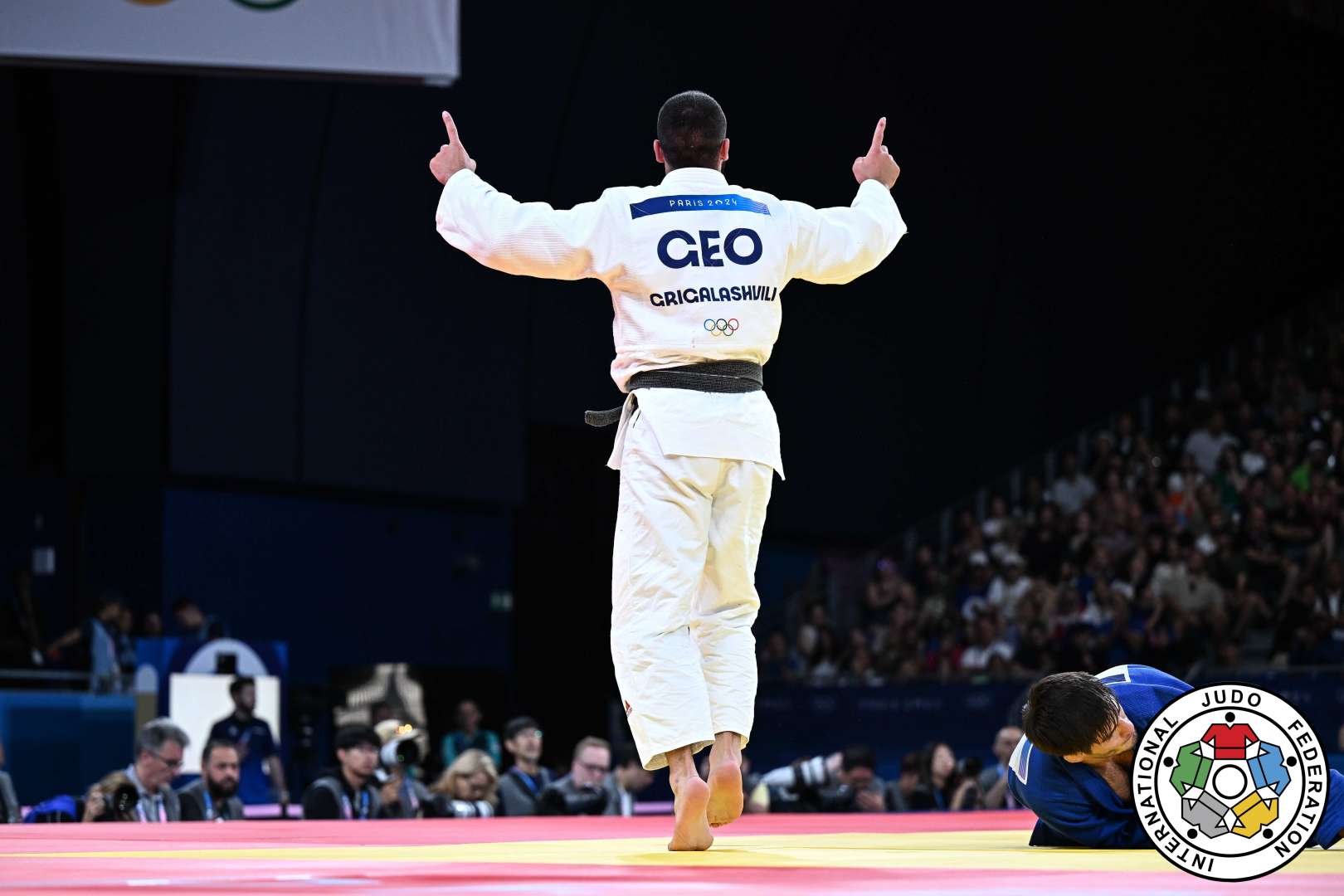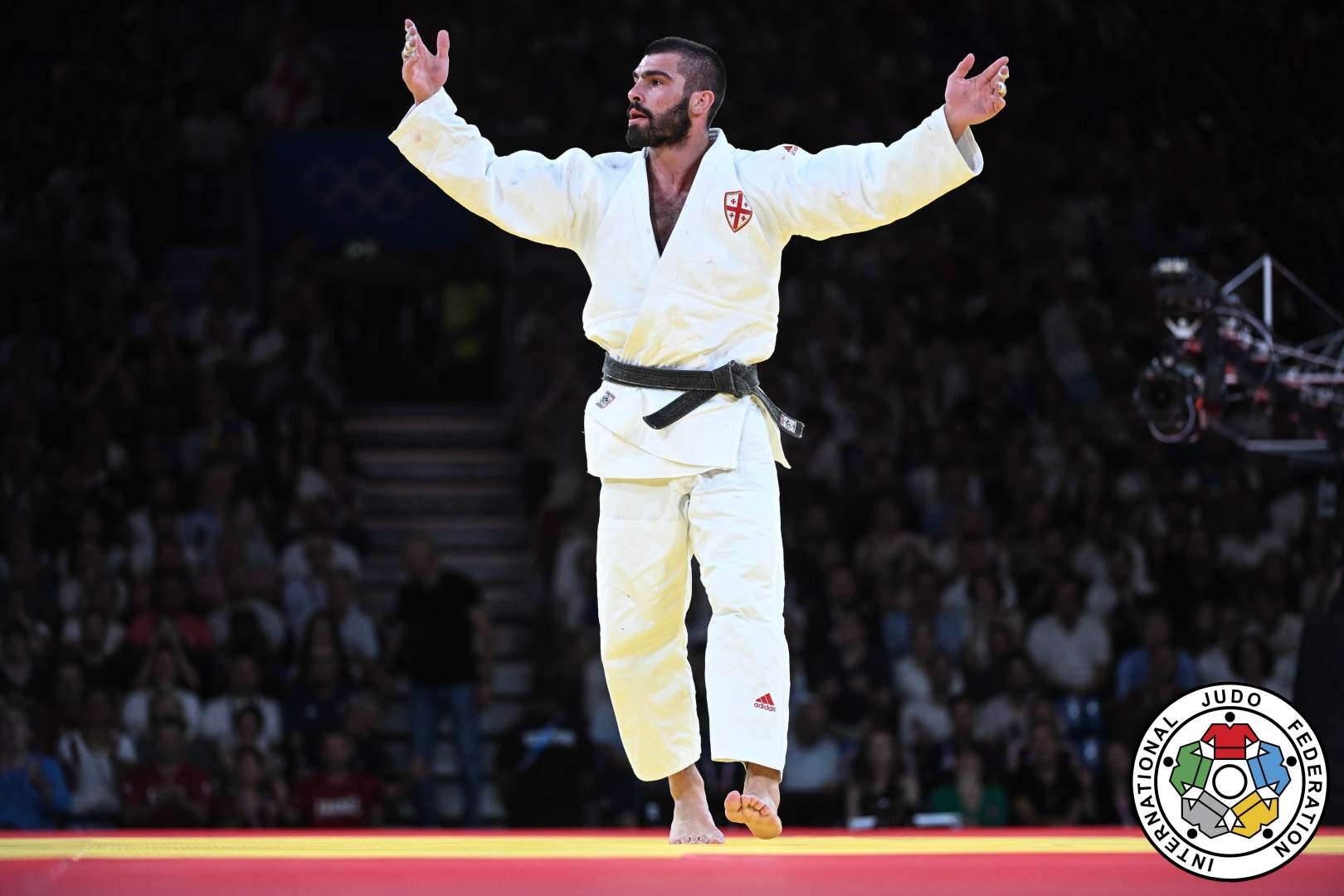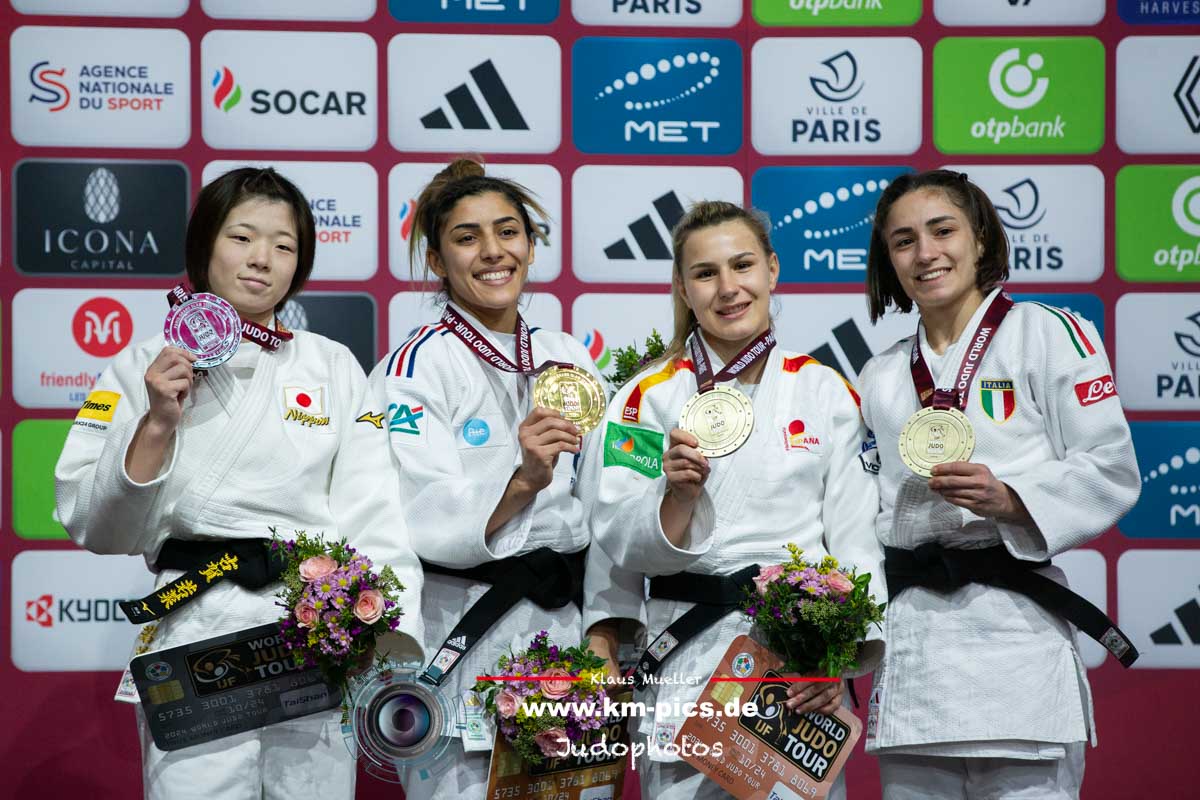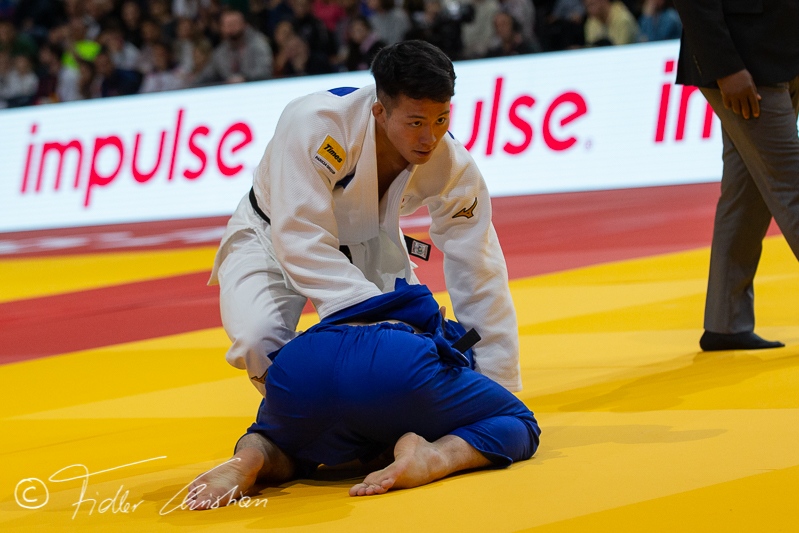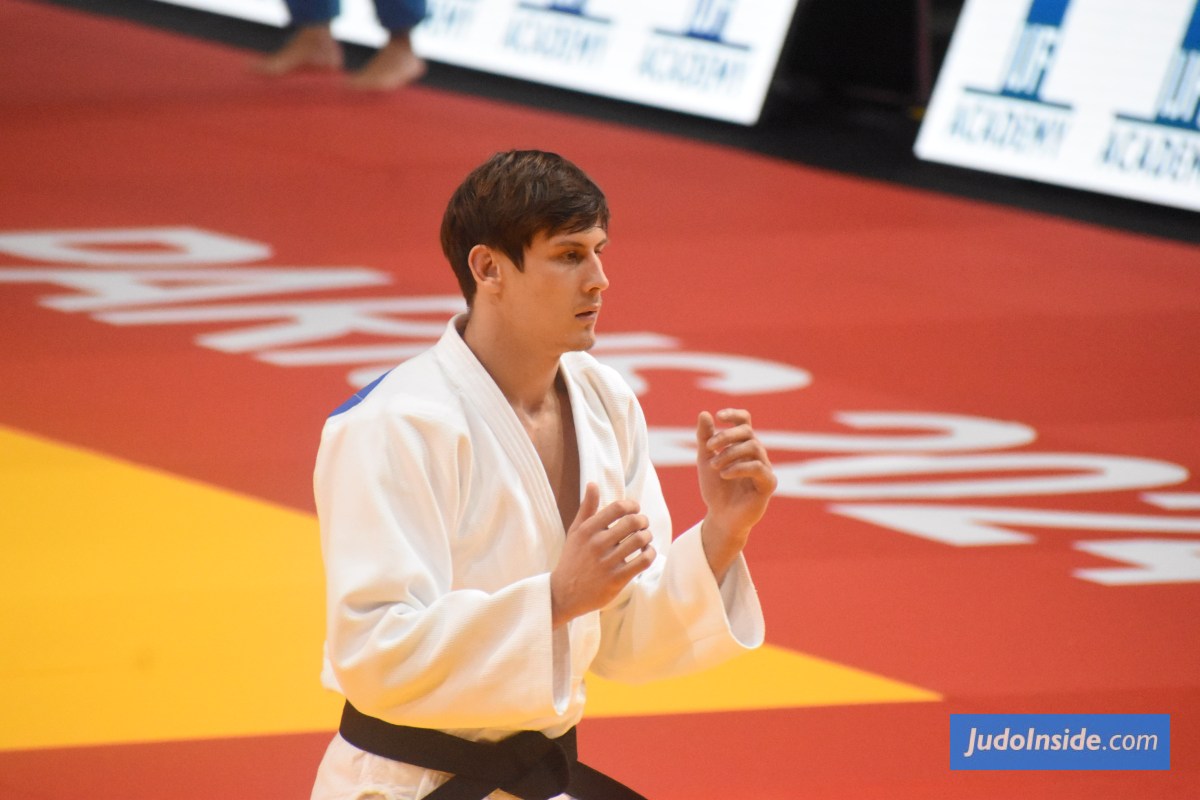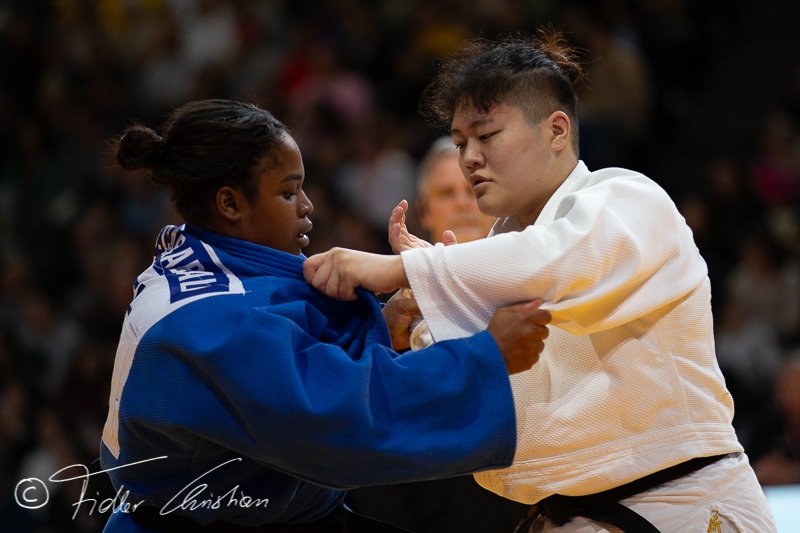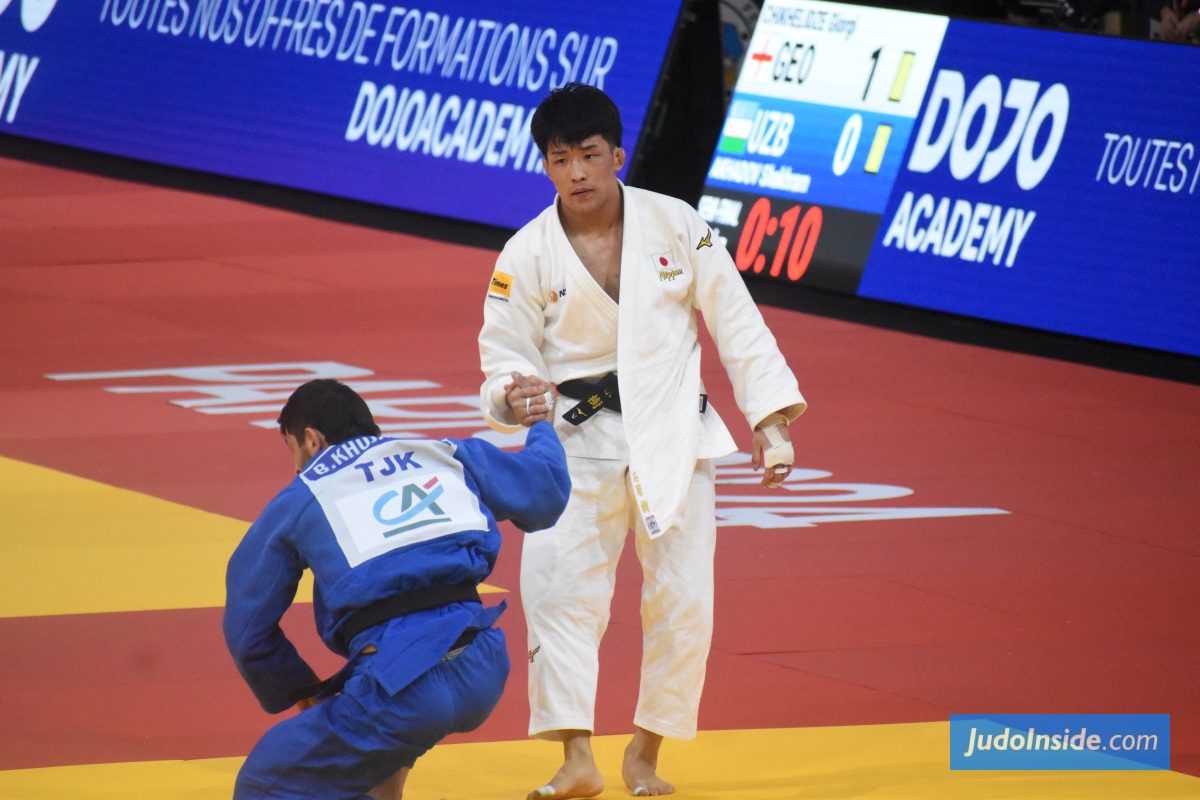Throwback 19 Sep 2000 Severine Vandenhende shows France the way
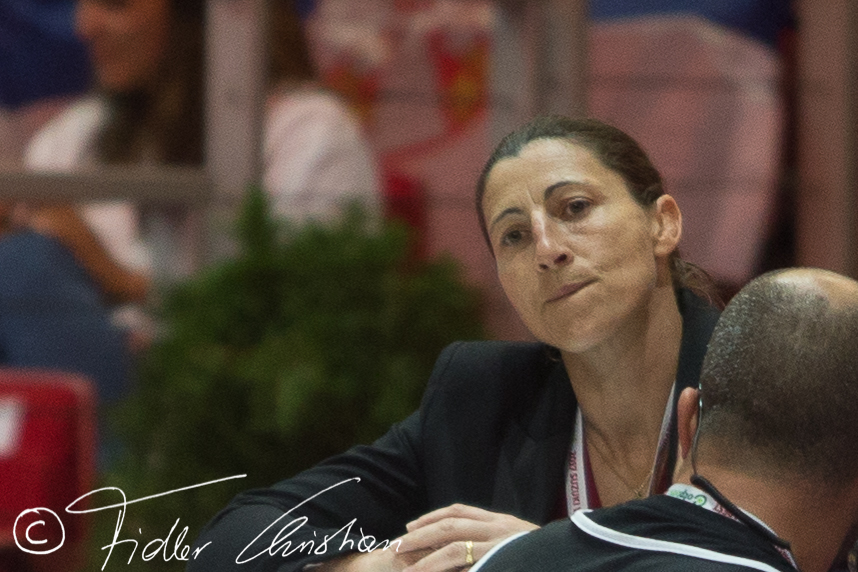
 19 Sep 2020 14:10
19 Sep 2020 14:10
 TWOJ, the world of Judo, by Barnaby Chesterman
TWOJ, the world of Judo, by Barnaby Chesterman
 Christian Fidler
Christian Fidler
At the Olympic Games of 2000 France had to wait a long time for a gold, but at 19 September 2000 Severine Vandenhende finally gave France its first Olympic title in Sydney. Fifteen years later Vandenhende helps the younger judoka to success. JudoInside witnessed the Olympic Games in Sydney with each day new miracles at perhaps the best ever Games. We throwback to 19 September 2000, drawn up by Barnaby Chesterman on behalf of The World of Judo Magazine.
Severine Vandenhende of France and Makoto Takimoto of Japan grabbed the spoils on the fourth day of the 2000 Olympic Judo tournament in Sydney. Vandenhende completed a remarkable turnaround after two disappointing seasons since her World title on home soil in 1997. The French woman edged out Shufeng Li of China on penalties in the final to add the Olympic title at the end of a successful season that included silver medals at both the prestigious Tournoi de Paris and the European championships.
Vandenhende had the toughest possible draw in the women's -63kgs category, with World champion, Keiko Maeda of Japan and Asian champion Sung Sook Jung both in her quarter of the draw. Jung actually beat Vandenhende in the final in Paris by Ippon and the Korean was her first fight. Jung started more positively and scored a Yuko but Vandenhende was always in the fight. Finally in the last minute, the French-woman scored an Ippon through a piece of ingenious improvisation. She attacked Jung with Kouchi-gari which the Korean countered with a pick-up. As she began to pivot on her back foot to turn Vandenhende onto her back, the French-woman clipped her front leg, thus preventing the twist. Jung crashed down onto her back and Vandenhende strode into the next round. A clash with Maeda was expected but didn't materialise as the Japanese World champion was beaten by Celita Schutz of the USA.
Vandenhende continued to throw each opponent for Ippon until she met Anja Von Rekowski of Germany in the semi-final. She won by virtue of two Waza-aris although the second one left her completely bemused and in fact one corner judge even felt it should have gone to Von Rekowski. In the final she met Shufeng Li of China who had scored a surprise quarter-final victory against Gella Vandecaveye. Vandenhende lost by Koka to Li in the final of the Citta di Roma in April so she was not about to underestimate her opponent. It was won on penalties as the 21-year-old Chinese was penalised for dropping with just 10 seconds remaining so Vandenhende added an Olympic gold to the World championship gold she won in 1997.
It completed a remarkable turnaround for Vandenhende this season since her victory in 1997. She missed the 1998 season due to injury and then had a miserable 1999 when the defense of her world title ended in the first round before her season again ended with an injury. "I feel like I've won a competition," said the champion, "but it doesn't feel like the Olympics. At the moment it just feels like another competition. I think it will probably sink in during the next few days."
In the women's competition, two of the favourites bounced back from their disappointments to earn bronze medals. Vandecaveye beat Von Rekowski for a podium finished but she had mixed emotions at the end. She was glad just to be in the tournament after tearing her cruciate knee cross-ligament in July but felt she had been robbed of a gold medal. She said: "two months ago I was not even sure I would come here so if you take into account the context of my bronze medal then it is a good result. But it could have been more. I lost against the referees, not the Chinese. That is sport, though, sometimes you have to be lucky." Her coach, Jean-Marie Dedecker added: "The first thing she said to me when she left the mat was 'the referees cost me gold.'" Jung was the other favourite to also come back to take a bronze but she needed a unanimous judges' decision to beat Jenny Gal of Italy.
The men's -81kgs final was a repeat of the 1995 Asian championships final between Takimoto and In Chul Cho of South Korea. Just as five years before, Takimoto was triumphant and something of a surprise champion even back home in Japan where few people gave him a chance, particularly seeing as he recently finished only third in a weakened Asian championships. Takimoto faced some tough challenges along the way, particularly in the semi-final against the reigning champion, Djamel Bouras of France. Takimoto was unfazed by his illustrious and awkward opponent, though, and a Waza-ari score late in the bout with a classical Tai-otoshi, proved enough to qualify for the final. Cho was the overwhelming favourite in the final but Takimoto attacked relentlessly and landed the vital scores to take the Olympic crown. Afterwards he said: "During an Olympic training camp I bought a magazine that rated the chances of the Japanese fighters. They only gave me a 30% chance of winning the gold medal, so I thought, 'I'll show you'. When I actually won the medal, though, I had completely forgotten about that article." Cho was a little disappointed, though, and said: "I am a little bit sad. Koreans are only happy when they win gold."
Bouras faced the Estonian, Alexei Budolin in the bronze fight. He seemed to find it hard to lift himself after his semi-final defeat and three times he conceded a Koka to the same technique, Tani-otoshi. Bouras seemed very upset after that defeat, having also finished fifth at last year's World championship, and was seen pointing to the referees table and announcing his displeasure about something. In the meantime, Budolin received a phone call from the Estonian president to congratulate him on his medal. Nuno Delgado of Portugal won the other bronze medal by armlocking the Frenchman-turned-Uruguayan, Alvaro Paseyro. He had knocked out the World championship silver medallist, Farkhod Turaev of Uzbekistan in the first round but couldn't quite make it onto the podium. It was the third time Delgado had won with juji-gatame during the day and he dedicated his medal to his national association.
Perhaps new 2019 World Champions Clarisse Agbegnenou and Israelian Sagi Muki will be the next Japanese Olympic champions U63jg and U81kg..
 like
like
 share
share

| Result | City | Date |
|---|---|---|
| 2 | Paris | 2024 |
| 1 | Abu Dhabi | 2024 |
| 1 | Zagreb | 2024 |
| 3 | Belgrade | 2023 |
| 2 | Montpellier | 2023 |

